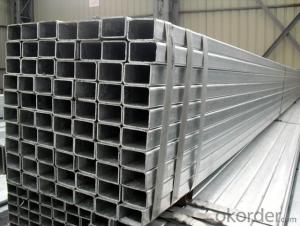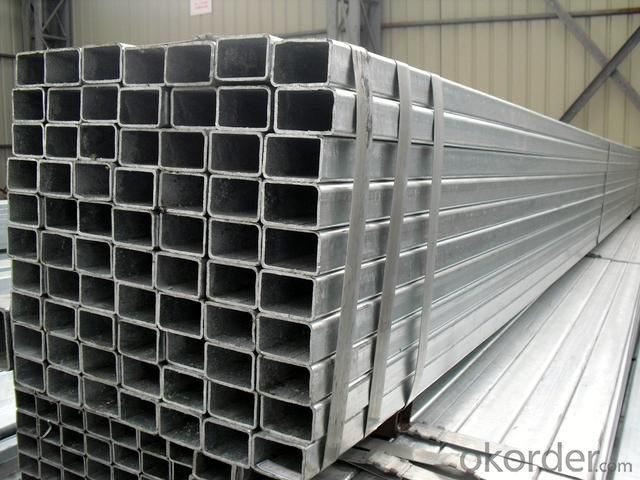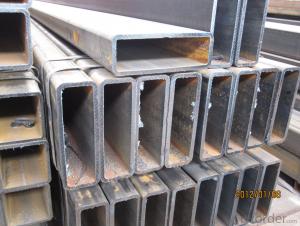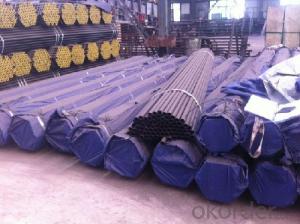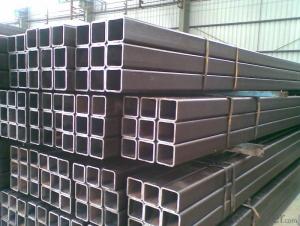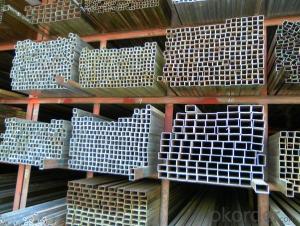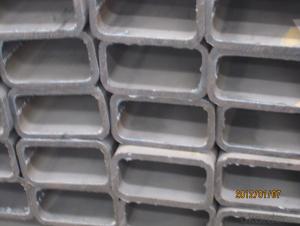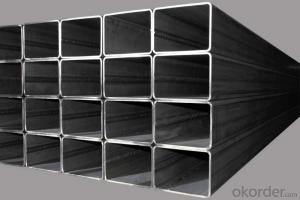OIL HOLLOW SECTION TUBE
- Loading Port:
- China Main Port
- Payment Terms:
- TT OR LC
- Min Order Qty:
- -
- Supply Capability:
- -
OKorder Service Pledge
OKorder Financial Service
You Might Also Like
Product Name | ||
Size | Size: | 10*10--500*500mm |
Thickness: | 0.45--16mm | |
Length: | 3-12m | |
Steel Grade | Q195,Q215,Q235,Q345,16Mn, 20# | |
Standard | ASTM A500,EN10219,GB/T6728,GB/T6725,JIS G3466 | |
Usage | 1. For Structure, Airport, Railway 2. Construction and so on. | |
Ends | Plain end or By Your Choice | |
Surface | Bared Or With Oiled Or Galvanized | |
Technique | ERW ,Hot Rolled and Cold Rolled | |
Section Shape | Rectangular | |
Inspection | With Hydraulic Testing, Eddy Current , Infrared Test | |
Package | Bags, Bundle, In Bulk, Containers | |
MOQ | 20 Metric Ton / Can Be Negotiated | |
Supply Ability | 15,000 Metric Ton/Month | |
Date of Delivery | 7 days(Qty within 1000 Metric Ton) or According To The Quantity | |
Port of Shipment | Tianjin, China | |
Payment | L/C T/T | |
- Q: How are steel pipes classified based on their schedule?
- Steel pipes are classified based on their schedule, which refers to the thickness of the pipe walls. The schedule classification system includes different numerical values, such as Schedule 10, Schedule 40, and Schedule 80, to categorize pipes with varying wall thicknesses.
- Q: What is the shear strength of steel pipes?
- The shear strength of steel pipes can vary depending on various factors such as the grade and thickness of the steel, as well as the manufacturing process and any additional treatments or coatings applied. In general, steel pipes have a high shear strength due to the inherent strength of steel as a material. The shear strength is typically determined through testing and can range from 50,000 to 80,000 pounds per square inch (PSI) for common grades of steel pipes. However, it is important to note that the shear strength can be significantly higher for specialized or higher-grade steel pipes designed for specific applications such as offshore drilling or high-pressure systems. Therefore, it is advisable to consult the manufacturer's specifications or engineering standards for accurate and specific shear strength values for a particular steel pipe.
- Q: What is the difference between seamless steel pipes and seamless stainless steel pipes?
- The main difference between seamless steel pipes and seamless stainless steel pipes lies in their composition. Seamless steel pipes are typically made from carbon steel, which is an alloy of iron and carbon. On the other hand, seamless stainless steel pipes are made from an alloy of iron, carbon, and chromium, which gives them enhanced corrosion resistance and durability. This makes seamless stainless steel pipes suitable for applications where resistance to corrosion is essential, such as in the food industry or in environments with high humidity or exposure to chemicals.
- Q: SC15 what does galvanized steel pipe look like?
- Zinc plating: galvanized steel pipe hot galvanized and galvanized two kinds, hot galvanized, zinc coating thickness, with uniform coating, adhesion, long service life and so on. The cost of galvanizing is low, the surface is not very smooth, and the corrosion resistance of itself is much better than that of galvanized pipe. Refer to
- Q: Are steel pipes suitable for underground irrigation pumping?
- Indeed, steel pipes prove to be a fitting option for underground irrigation pumping. Renowned for their robustness and resilience, steel pipes present themselves as an optimal selection for subterranean utilities. They boast the capacity to endure substantial pressure, ward off corrosion, and remain less susceptible to soil shifting or fluctuations in temperature. Moreover, steel pipes exhibit a lengthier lifespan when juxtaposed with alternative materials, thereby mitigating the necessity for frequent replacements. However, it remains imperative to guarantee meticulous coating or lining of the steel pipes to avert corrosion and to consistently examine and uphold them for their continued efficacy and durability.
- Q: How to distinguish between steel pipe and spiral pipe material?
- The alloy tube can be divided into: low alloy pipe, alloy pipe structure, high alloy tube, high strength tube. Bearing tube, heat resistant acid resistant stainless pipe, precision alloy (such as cutting alloy) pipe, high temperature alloy tube, etc..
- Q: What are the uses of seamless steel tubes?
- A large number of pipes used for conveying fluids, such as pipelines for transporting petroleum, natural gas, gas, water, and certain solid materials.
- Q: What are the factors affecting the pressure rating of steel pipes?
- The factors affecting the pressure rating of steel pipes include the material of the pipe, its thickness, diameter, and quality, as well as the temperature and type of fluid being transported. Additionally, the operating conditions, such as the level of stress or strain on the pipe, also play a significant role in determining its pressure rating.
- Q: What are the common challenges faced during steel pipe installation?
- When installing steel pipes, there are various challenges that may arise. One of these challenges involves the need to ensure that the pipe sections are properly aligned and fit together correctly. Welding or threading is typically used to join steel pipes, and if the alignment is not precise, it can result in leaks or weak points in the pipeline. To overcome this challenge, it is necessary to use careful measurements and alignment techniques to ensure a secure and tight fit between the pipe sections. Another challenge that arises is dealing with corrosion and rust. Steel pipes are prone to corrosion, especially when exposed to moisture or corrosive substances. This can lead to the deterioration of the pipes over time, compromising their structural integrity and increasing the risk of leaks. To address this challenge, it is possible to apply protective coatings or linings to the steel pipes to prevent corrosion and extend their lifespan. Additionally, the weight and size of steel pipes can pose a challenge during installation. Steel pipes are heavy, and it can be physically demanding to maneuver and position them. Moreover, the large diameter of some steel pipes makes it difficult to transport and handle them in tight spaces or through narrow pathways. Overcoming this challenge often requires the use of heavy machinery, such as cranes or forklifts, to lift and position the pipes correctly. Lastly, environmental factors can also present challenges during steel pipe installation. Extreme temperatures, harsh weather conditions, or unstable soil conditions can impact the installation process. For example, freezing temperatures can make it challenging to weld the pipes, while unstable soil may require additional reinforcement or stabilization measures to ensure the longevity of the pipeline. In conclusion, the challenges commonly faced during steel pipe installation include the need for proper alignment, the issue of corrosion and rust, the handling of the weight and size of the pipes, and the consideration of environmental factors. Overcoming these challenges requires careful planning, attention to detail, and the utilization of appropriate techniques and equipment.
- Q: How are steel pipes used in the manufacturing of irrigation systems?
- Steel pipes are commonly used in the manufacturing of irrigation systems as they provide durability, strength, and resistance to corrosion. These pipes are used to connect various components of the irrigation system, such as pumps, filters, valves, and sprinklers. They ensure the efficient flow of water, withstand high pressure, and can be easily customized to fit the specific requirements of the irrigation system.
Send your message to us
OIL HOLLOW SECTION TUBE
- Loading Port:
- China Main Port
- Payment Terms:
- TT OR LC
- Min Order Qty:
- -
- Supply Capability:
- -
OKorder Service Pledge
OKorder Financial Service
Similar products
Hot products
Hot Searches
Related keywords
